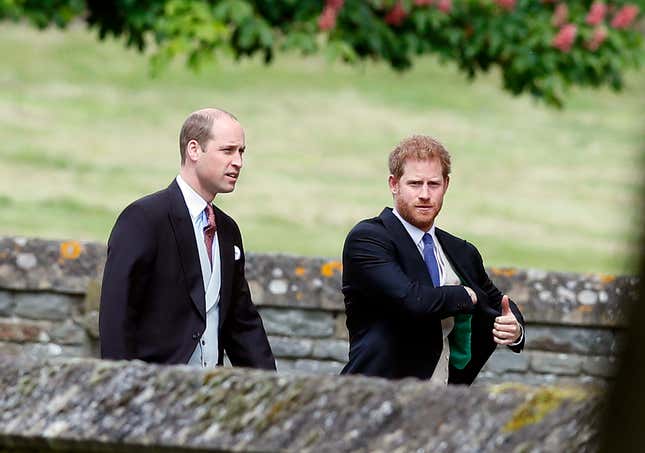
William and Harry have released separate statements condemning the BBC’s practices during the outlet’s iconic 1995 interview with their mother, following the results of an investigation that were made public on Thursday.
The BBC-commissioned inquiry, led by a former British Supreme Court judge, found that the news anchor who conducted the interview had used fake documents to obtain access to Princess Diana. When the BBC learned of how the anchor, Martin Bashir, secured the exclusive, the outlet covered it up, falling short “of the high standards of integrity and transparency which are its hallmark,” the judge concluded.
“It brings me indescribable sadness to know that the BBC’s failures contributed significantly to her fear, paranoia, and isolation that I remember from those final years with her,” William said of his mother, calling the interview “deceitful.”
“... It is my firm view that the Panorama programme holds no legitimacy and should never be aired again,” he continued. “It effectively established a false narrative which, for over a quarter of a century, has been commercialised by the BBC and others.”
Harry too accused the outlet of participating in a narrative about Diana that tormented her in life and eventually led to her death.
“The ripple effect of a culture of exploitation and unethical practices ultimately took her life,” Harry wrote in his statement. “ ... What deeply concerns me is that practices like these—and even worse—are still widespread today. Then, and now, it’s bigger than one outlet, one network, or one publication. Our mother lost her life because of this, and nothing has changed.”
The BBC said it has formally apologized to William and Harry, Prince Charles, and Earl Spencer, the person Bashir manipulated to get closer to Diana, according to the investigation. “Well, the irony is that I met Martin Bashir on the 31st of August 1995—because exactly two years later she died, and I do draw a line between the two events,” the earl told the BBC.